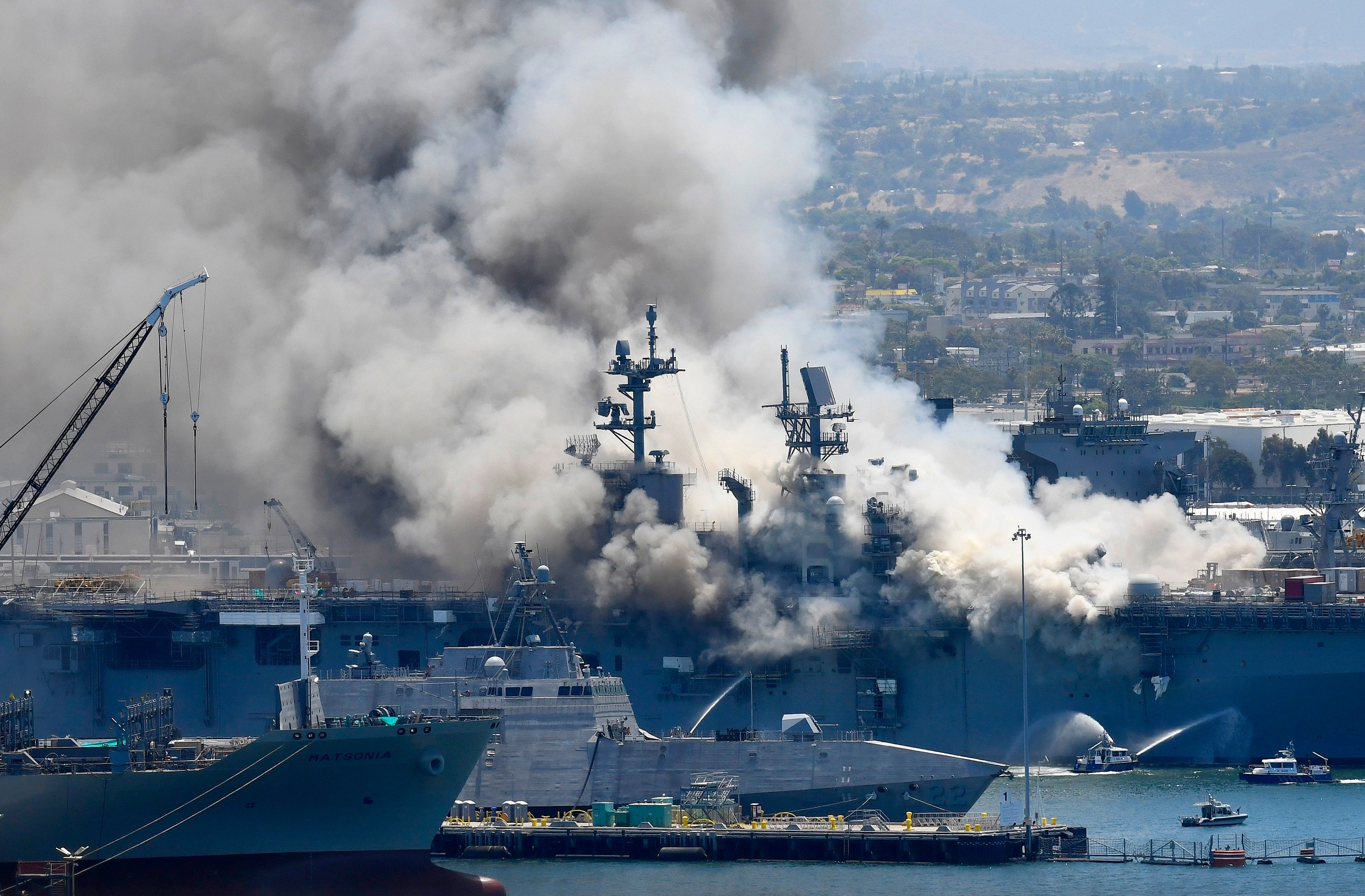Navy will decommission warship damaged in suspected arson
The Navy says it will decommission a warship docked off San Diego after suspected arson caused extensive damage, making it too expensive to restore

Your support helps us to tell the story
From reproductive rights to climate change to Big Tech, The Independent is on the ground when the story is developing. Whether it's investigating the financials of Elon Musk's pro-Trump PAC or producing our latest documentary, 'The A Word', which shines a light on the American women fighting for reproductive rights, we know how important it is to parse out the facts from the messaging.
At such a critical moment in US history, we need reporters on the ground. Your donation allows us to keep sending journalists to speak to both sides of the story.
The Independent is trusted by Americans across the entire political spectrum. And unlike many other quality news outlets, we choose not to lock Americans out of our reporting and analysis with paywalls. We believe quality journalism should be available to everyone, paid for by those who can afford it.
Your support makes all the difference.The Navy said Monday that it will decommission a warship docked off San Diego after suspected arson this summer caused extensive damage, making it too expensive to restore.
Fully repairing the USS Bonhomme Richard to warfighting capabilities would cost $2.5 billion to $3 billion and take five to seven years, said Rear Adm. Eric H. Ver Hage of the Navy Regional Maintenance Center.
The amphibious assault ship burned for more than four days in July and was the Navy’s worst U.S. warship fire outside of combat in recent memory. The ship was left with extensive structural, electrical and mechanical damage.
Restoring it for another use, perhaps as a hospital, would take almost as long as full restoration and cost $1 billion.
Decommissioning the ship will take nine months to a year and cost $30 million, Ver Hage said.
Navy officials and industry experts studied the cost and schedule with an eye toward “the art of the possible,” Ver Hage told reporters. They decided it wasn't worth the money to restore, considering the impact it would have on other spending priorities.
“The dollars definitely would disrupt our strategy for investment,” he said.
Arson is suspected as the cause of the July 12 fire, and a U.S. Navy sailor was questioned as a potential suspect, a senior defense official said in late August.
The sailor was questioned as part of the investigation by the Naval Criminal Investigative Service and the Bureau of Alcohol, Tobacco, Firearms and Explosives, an official with knowledge of the investigation said in August. The official spoke to The Associated Press on condition of anonymity to provide details not yet made public. The sailor was not detained.
Ver Hage declined to comment Monday on the status of several investigations and he didn't give a timeline for their completion, saying they "will conclude when the time is right.”
Ver Hage said about 60% of the ship would likely need to be replaced to have it fully restored, including the flight deck, mast and many levels directly below the flight deck.
The ship will likely be decommissioned in San Diego. Crew members will be notified of reassignment.
The Bonhomme Richard was nearing the end of a two-year upgrade estimated to cost $250 million when the fire started.
About 160 sailors and officers were on board when the flames sent up a huge plume of dark smoke from the 840-foot (256-meter) amphibious assault vessel, which had been docked at Naval Base San Diego while undergoing the upgrade.
Firefighters attacked the flames inside the ship while firefighting vessels with water cannons directed streams of seawater into the ship and helicopters made water drops.
More than 60 sailors and civilians were treated for minor injuries, heat exhaustion and smoke inhalation.